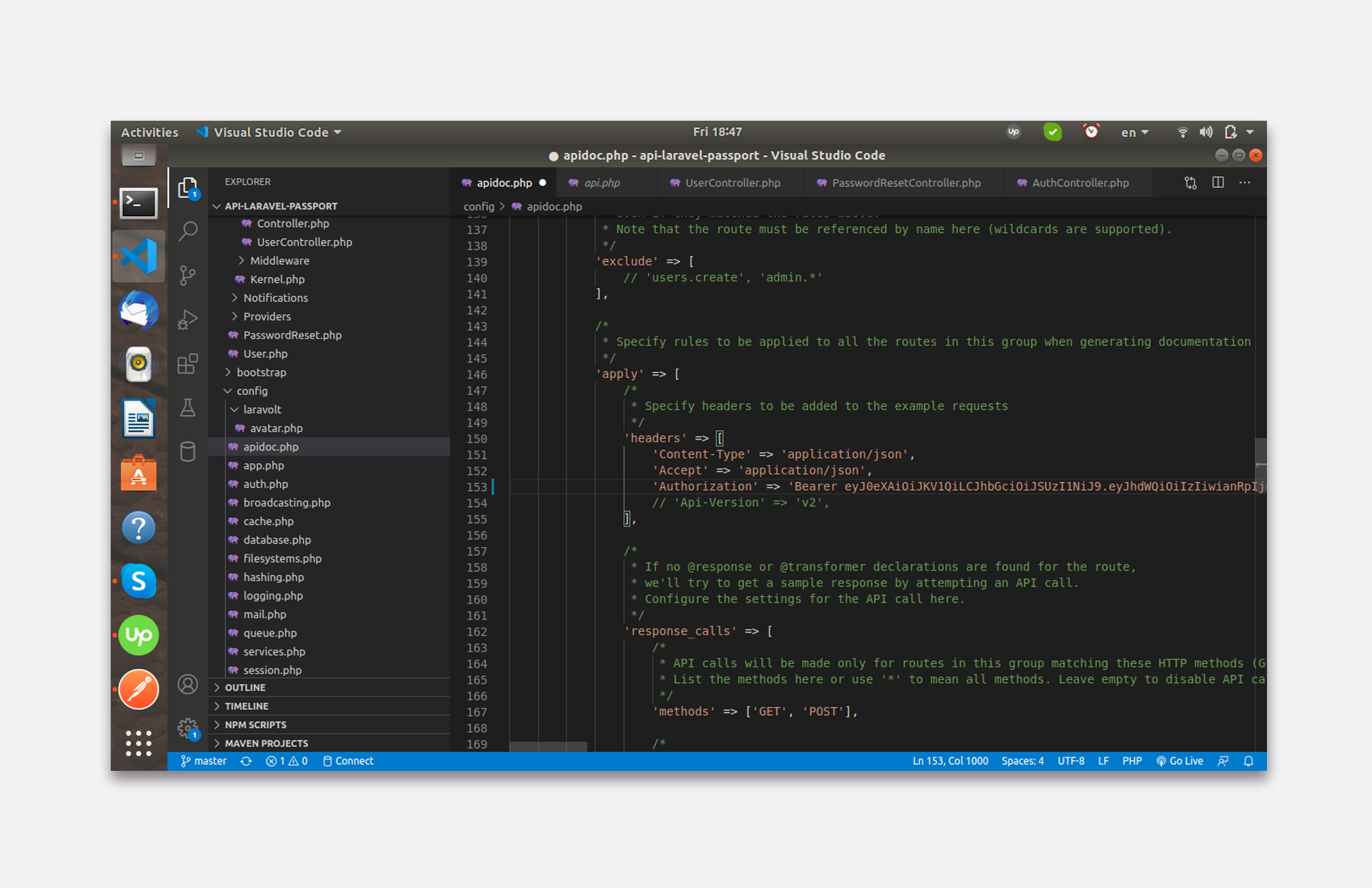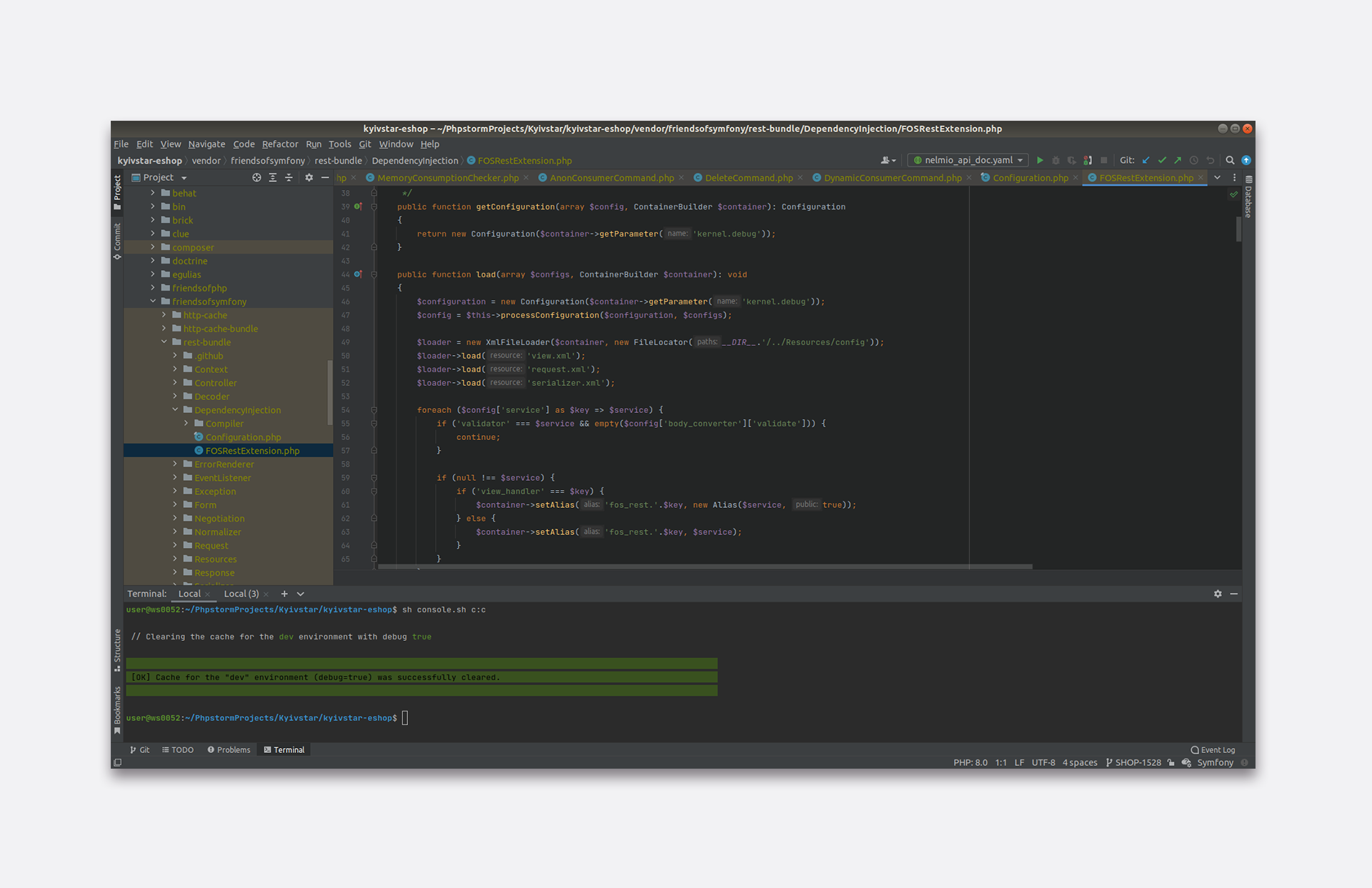PHP
PHP is a scripting language. It is one of the most popular for developing dynamic web applications.
Writing projects for any commercial tasks and not only in PHP can be quick and easy if you have an experienced team. It is one of the basic languages used to write the server side of web applications.
Almost all cool frameworks and CMSs for web development are written in PHP. Among them, there is definitely one that suits your business needs. Regardless of the platform you choose, your developers will have all the tools to quickly launch an MVP and further refine the web application.
PHP can be used to write web applications for Windows, Unix, Linux, and MacOS, including cross-platform applications. In addition, it is compatible with all popular servers and databases. It doesn't matter if you decide to use Apache and MySQL or Netscape and PostgreSQL - everything can work equally well. The same goes for the UI. If you don't want to use PHP with HTML, you can use JavaScript, WML, XML, and others. In any case, the scripts will be compiled on the server side and nothing depends on the browser.
Iterative PHP development, when tasks are solved gradually and in parallel, can save you money. Considering that average projects in this language are already cheaper than similar ones in Java, the savings will be really noticeable. PHP perfectly supports OOP and you can write structured code in it, which, if you have documentation, will be easy to understand. This is beneficial because new developers won't need to spend a lot of time immersing themselves in the project. And you'll definitely need new people on your team when you decide to scale your web application.
Hosting providers have a positive attitude towards the versatility of the language. They are guaranteed to support PHP at the most favorable rates, and sometimes even for free.
PHP is an open-source solution that can be used by anyone for any task. Nowadays, there are thousands of modules for all frameworks and CMSs freely available, allowing you to implement hundreds of functions. Most of the work of your programmers, especially on standard tasks, will be to find the best solution and create an ecosystem of web applications.
Literally the best backend framework of the last 5 years, according to the Github community. It is designed for medium and large projects that require powerful custom solutions. Laravel's specialty is packages with ready-made functions for a variety of tasks that can be connected to the project. Plus, your developers will have a full set of tools for custom business logic, as well as extensive official documentation and support from a huge community!
Modularity allows you to gradually refine the functionality of the site and customize it without stopping work. By the way, tools for testing, including emulation of user behavior in the browser environment, are also included in the basic assembly of the framework. At the same time, the code remains readable by separating the business logic from the user interface according to the MVC architecture template.
A powerful and structured “academically complex” framework for large-scale and non-standard projects that will grow and develop. Symfony is a very flexible platform with many innovative solutions and almost limitless possibilities that only experienced developers can use.
Dozens of libraries have been written for Symfony, and all module packages, including custom ones, can be assembled into a single whole by configuring the connections in such a way as to solve your task as efficiently as possible.
By the way, the most popular CMS in the world, WordPress, is written in PHP, ideal for Magento online stores, professional for corporate websites - Drupal and others, you can also read about them by following the links.
Why is it that with all the advantages of PHP, it is the one that is mentioned when it comes to bad programming languages?
We all know that any task can be solved either quickly and inexpensively, or quickly and efficiently, or efficiently and inexpensively, but not all at once. Traditionally, PHP is about fast and inexpensive.
The reason for this situation is the low entry threshold. You can write PHP code literally in a notepad, but no one will monitor the quality. In the 90s, when the language appeared, there were completely different trends, and it was not developed by a large corporation like Java and C#, but by enthusiasts who needed a simple tool that works on a home computer of those years. The PHP interpreter does not display detailed error information and you may get the impression that everything is fine if the code works. And then they will encounter a critical problem.
Given that PHP was the first language available for web development, all of its competitors, including Python, Ruby, and NodeJS, attracted audiences by offering ready-made solutions to the problems of the “common enemy.” Gradually, the community fixed all the shortcomings of PHP, and now, if your project is handled by an experienced team, the site will turn out no worse than in other languages. The powerful tools of PHP frameworks are enough to meet the needs of an e-commerce project of any scale.
PHP is a language that allows you to simultaneously write a website on your knee and, with the help of frameworks, create a powerful custom solution for an enterprise business. Most of the popular CMSs are written in PHP and any project can be implemented. There are thousands of ready-made function packages for websites for various purposes in the public domain, and a huge community will help you find solutions for non-standard tasks.
The language's shortcomings have been practically fixed by the latest updates, and its advantages allow you to safely use it to develop web applications for businesses of any complexity, provided that an experienced team is engaged in programming.



